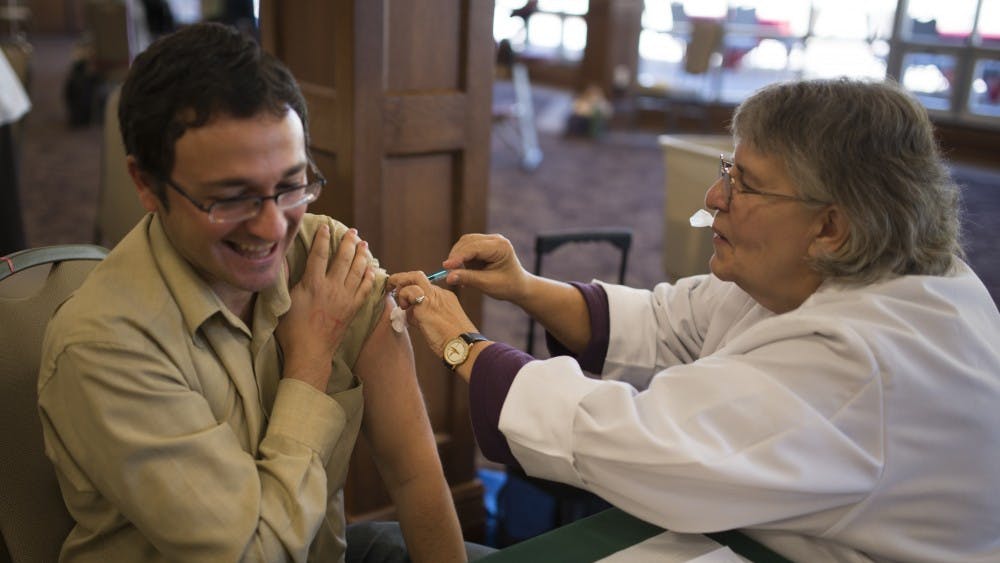Can what you don’t know really hurt you?
According to a series of studies in the September issue of Sexuality Research and Social Policy, one of the top journals in the field, the answer is yes.
The five articles in this special issue conclude that, among other shortcomings, abstinence-only sexual education programs are often ineffective and contain inaccurate information.
The studies, collected and organized by researchers at Columbia University, found that:
Only three out of nine abstinence-only programs studied had a significant positive effect on the sexual behavior of teens. In contrast, two-thirds of the programs that included discussions of condoms and contraception showed a positive effect on sexual behavior by delaying students’ first sexual encounter and increasing condom use among teenagers.
Information on condom use in abstinence-only sexual education programs was inaccurately portrayed, including the use of out-of-date references and incorrect comparisons between HIV transmission risk and pregnancy risk, among other erroneous information.
“First and foremost, (the studies found that) abstinence-only education programs don’t do what they say they’re going to do,” said Leslie Kantor, assistant professor at the Mailman School of Public Heath at Columbia University.
Abstinence-only sexual education programs discuss abstinence as the only way for teenagers to prevent pregnancy and sexually transmitted diseases.
Comprehensive sex ed programs, while also stressing abstinence, include additional information on condoms and contraception.
As of now, federal funding is only available to schools that teach abstinence-only programs.
However, this could change with the upcoming election.
A campaign spokesperson said Barack Obama supports comprehensive sexual education programs. What the McCain camp thinks is less clear. A spokesperson said that both Sarah Palin and John McCain support the federally funded abstinence-only programs but want to include information on contraception.
One of the dangers of abstinence-only programs is that they leave out important information, such as reproductive anatomy and sexually transmitted disease prevention, said Michael Reece, director of IU’s Center for Sexual Health Promotion and associate professor in the School of Health, Physical Education, and Recreation.
He stressed that abstinence is a positive message, one that both health workers and parents support.
But leaving out other crucial information can, in some cases, be life-threatening to teens as they grow older.
“We don’t teach math because we think people only need it when they’re 13, 14 years old,” Reece said. “We teach math in school so that people have basic skills to get through life later.”
And because Indiana accepts abstinence-only funding, Reece says he sees this sexual ignorance manifesting itself right here in Bloomington.
“We have freshman arriving on campus who know very little about how their bodies work, about how to prevent infections or pregnancies,” he said. “What this special issue points out is that a lot of this lack of information can be traced back to just how unprepared we leave people in this area.”
This peer-reviewed special issue of Sexuality Research and Social Policy presents all new research.
Reece said that there have been other scientific studies that have found that abstinence-only programs do work, “but most sexual health researchers would find their methodology flawed.”
He added that many of these studies don’t follow teens’ behavior for long periods of time, or they include only students from abstinence “clubs.”
The articles published in the issue looked at the sexual behavior of a large number of adolescents and tracked them over periods of time.
Kantor said the ideas taught in abstinence-only sex ed programs go unchecked because there are no federal standards for determining the medical accuracy in these programs. And because this can lead to adolescents being misinformed about their health, it has human rights implications, she said.
“Access to accurate information needed to protect your health is a human right,” Kantor said. “Abstinence-only education actually violates that right.”
Reece said that people have a right to believe whatever they want to believe about the morality of sex outside of marriage. But that’s not the issue, he said.
“Just because we have different opinions about it,” he said, “doesn’t mean we don’t have the responsibility to sit back and question whether leaving adolescents completely unprepared to deal with sexuality across their lifespans is the right thing to do.”
Abstinence-only sex education inadequate, major sexuality journal finds
Get stories like this in your inbox
Subscribe





